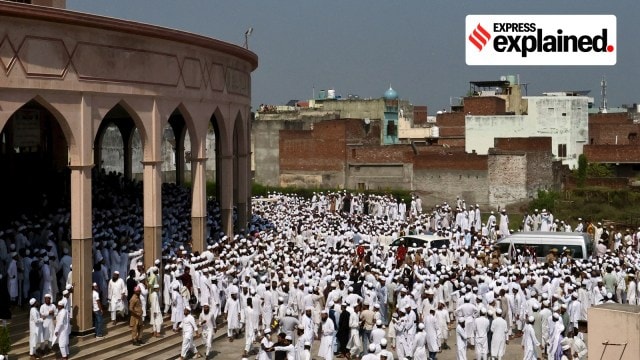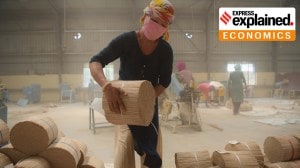When Amir Khan Muttaqi, Taliban-ruled Afghanistan’s Foreign Minister, visited the Darul Uloom in UP’s Deoband recently, it was a day to remember for the seminary. Such was the eagerness among locals to catch a glimpse of Muttaqi that a public event had to be cancelled, with officials saying they feared a stampede.

What is Darul Uloom Deoband?
Darul Uloom Deoband was established on May 31, 1866, around 150 km from Delhi, in the wake of the revolt of 1857. Deoband is a town in Saharanpur district. This seminary in Deoband, and the Dar ul-Uloom Nadwatul Ulema in Lucknow, founded in 1883, were established as Islamic alternatives to universities being run by the British empire.
Within a few years of its establishment, the Deoband madarsa became a centre for students from neighbouring and distant countries wanting to study the Quran and other Islamic principles like the Sunnah, the Shariah and the Tariqah (the spiritual path). Scholars from countries like Afghanistan, Iran, Bukhara and Samarkand, Burma, Indonesia, Malaysia, Turkey and the far-off regions of Africa came to study at the madarsa.
The Darul Uloom is currently among the most renowned religious and academic centers in the Islamic world.In fact, it is considered second only to Al-Azhar University in Cairo, Egypt. In the sub-continent, it is the largest institution for the dissemination and propagation of Islam and the biggest headspring of education in the Islamic sciences.
For the last 100 years or so, the seminary has become an “incomparable teaching institution for the religious education of the Muslims not only in the sub-continent but also throughout the Islamic world”, said an official at the seminary.
The seminary is credited for awakening political consciousness among subcontinent Muslims and had also taken part in the freedom struggle against the British.
Story continues below this ad
After India’s partition, a similar seminary was established in Pakistan’s Khyber Pakhtunkhwa, called the Darul Uloom Haqqania. It was established by Maulana Abdul Haq, who had taught at the Deoband seminary before Partition. Students and scholars of the Pakistan seminary went on to become members of the Taliban. It was at the Deobandi madarsas in Pakistan where the ideological foundations of the Taliban were first laid.
What is the significance of the Deoband seminary and what does it preach?
The seminary promotes the Deobandi movement, a revivalist movement within Sunni Islam that follows the Hanafi school of jurisprudence. The Hanafi school of thought is named after Abu Hanifa, who interpreted the Quran and Hadith by laying more emphasis on rationality.
What is the relationship between the Deoband seminary and Afghanistan?
After the seminary was established, Afghans were among the earliest foreigners to reach Deoband. They went back to Afghanistan to establish similar madarsas in their nation. The result of this was that Deobandi teachings became an integral part of Afghanistan’s religious ethos.
Story continues below this ad
A majority of Sunni madrasas in Afghanistan are linked to the Deobandi school of thought. Several private madrasas in Afghanistan, however, are associated more with the Pakistani Deobandi tradition, with a stronger political and militant leaning. This is partially because after the Soviet–Afghan conflict started in 1979, more Afghanis started making their way to the madarsas in Pakistan instead of India.
What happened during Muttaqi’s visit to Deoband?
Muttaqi expressed his gratitude for the “grand welcome and affection” extended to him by people at Deoband. “I am thankful for such a grand welcome and the affection shown by the people here. I hope that India-Afghanistan ties advance further. We will be sending new diplomats, and I hope you people will visit Kabul as well. I have hopes for stronger ties in the future – from the way I was received in Delhi, these visits may be frequent in the near future,” Muttaqi said.
In return, the Darul Uloom Deoband gave the honorary title of ‘Qasmi’ to Muttaqi, who is an alumnus of Darul Uloom Haqqania.
Officials at the seminary say that over the years, Darul Uloom Deoband has consistently maintained a distance from the actions of Pakistan and the Taliban.








































